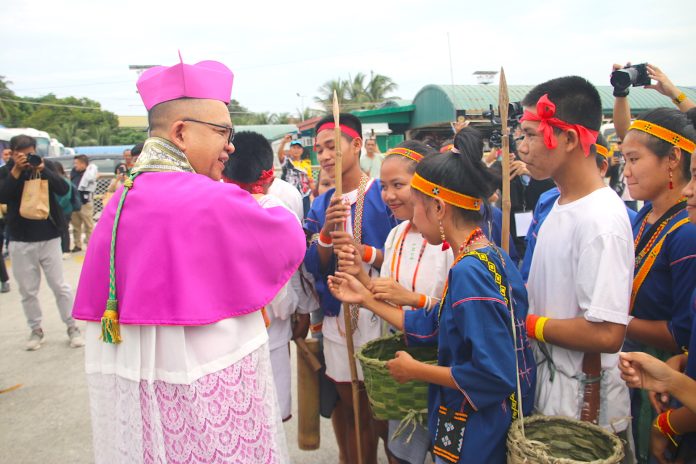The Diocesan Social Action Center (DSAC) of the Apostolic Vicariate of Calapan has intensified its campaign for good governance, voters’ education, and environmental accountability in preparation for the 2025 national and local elections.
In a report outlining its election-related advocacies, the DSAC said it is committed to promoting “justice, development agenda, and transformative politics,” highlighting the 2025 elections as “pivotal moments for societal transformation.”
Voters’ education campaign: ‘Formation of conscience’
As part of its campaign, the DSAC has rolled out comprehensive voters’ education modules through the Vicariate Foranes’ Service Secretariat. Initial sessions have been conducted in select parishes, and parish leaders have been urged to prioritize the initiative “to ensure responsible voting.”
The Diocesan Commission on Youth has also developed tailored modules for young voters, which are “available for immediate use.”
The report emphasized the need to educate parishioners, especially the youth, to “combat misinformation, discourage vote-buying, and encourage discernment in choosing leaders who uphold pro-poor agenda, human dignity and the common good.”
Electoral integrity through NAMFREL partnership
To safeguard electoral transparency, the Apostolic Vicariate of Calapan has entered into a Memorandum of Understanding with the National Citizens’ Movement for Free Elections (NAMFREL). The partnership formalizes collaboration on various election-related activities.
Under the agreement, the Vicariate commits to “mobilizing clergy, staff, and volunteers as election observers, providing logistical support for local NAMFREL chapters, and promoting voters’ education.”
In turn, NAMFREL will be responsible for “training volunteers, establishing local chapters, and distributing election-related materials to ensure credible and peaceful polls.”
“Credible elections are the foundation of democracy. By training observers and ensuring transparency, we help prevent fraud, deter violence, and uphold the sanctity of the people’s will,” the DSAC report said.
Green Agenda: Platform-based environmental assessment
In collaboration with Caritas Philippines and the Center for Energy, Ecology, and Development (CEED), the Vicariate has launched the Green Agenda Electoral Scorecard.
The initiative is designed to assess the environmental platforms of provincial candidates, including those running for governor, vice governor, congressional representative, and Sangguniang Panlalawigan.
“Oriental Mindoro faces pressing ecological crises — from destructive mining to climate vulnerability,” the report noted.
The Green Agenda seeks to empower voters by evaluating candidates’ stances on sustainability, mining, energy, and Indigenous Peoples’ rights. It aligns with the Church’s call for “integral ecology,” as emphasized in Laudato Si.
To expand the public conversation on ecological governance, the DSAC is organizing the Green Agenda Electoral Forum on May 1, 2025.
The forum, which will be aired live on the diocesan radio station DZSB 104.1 Spirit FM, will feature candidates for gubernatorial and vice-gubernatorial positions.
According to the DSAC, the forum will tackle “mining, fossil fuel dependence, power price volatility, marine protection, deforestation, Indigenous rights, and climate emergency response — all of which are critical to the future of our province and its people.”
Moral dimension of political participation
The DSAC underscored that the 2025 elections are not merely a political event but a moral opportunity for societal renewal.
“The 2025 elections are not merely political exercises but moral opportunities to elect leaders who embody moral integrity, servant-leadership, and ecological justice,” the report said.
The Vicariate is calling on parishes, organizations, and individuals to participate in voter education sessions, volunteer as NAMFREL volunteers, use the Green Agenda scorecard to scrutinize candidates, and pray and act for a peaceful, ethical, and transformative electoral process.
The report also echoed a long-standing call from the Catholic Bishops’ Conference of the Philippines: “If we are what we are today—a country with a very great number of poor and powerless people—one reason is the way we have allowed politics to be debased and prostituted to the low level it is in now.” (CBCP, Pastoral Exhortation on Philippine Politics, Sept. 16, 1997)









